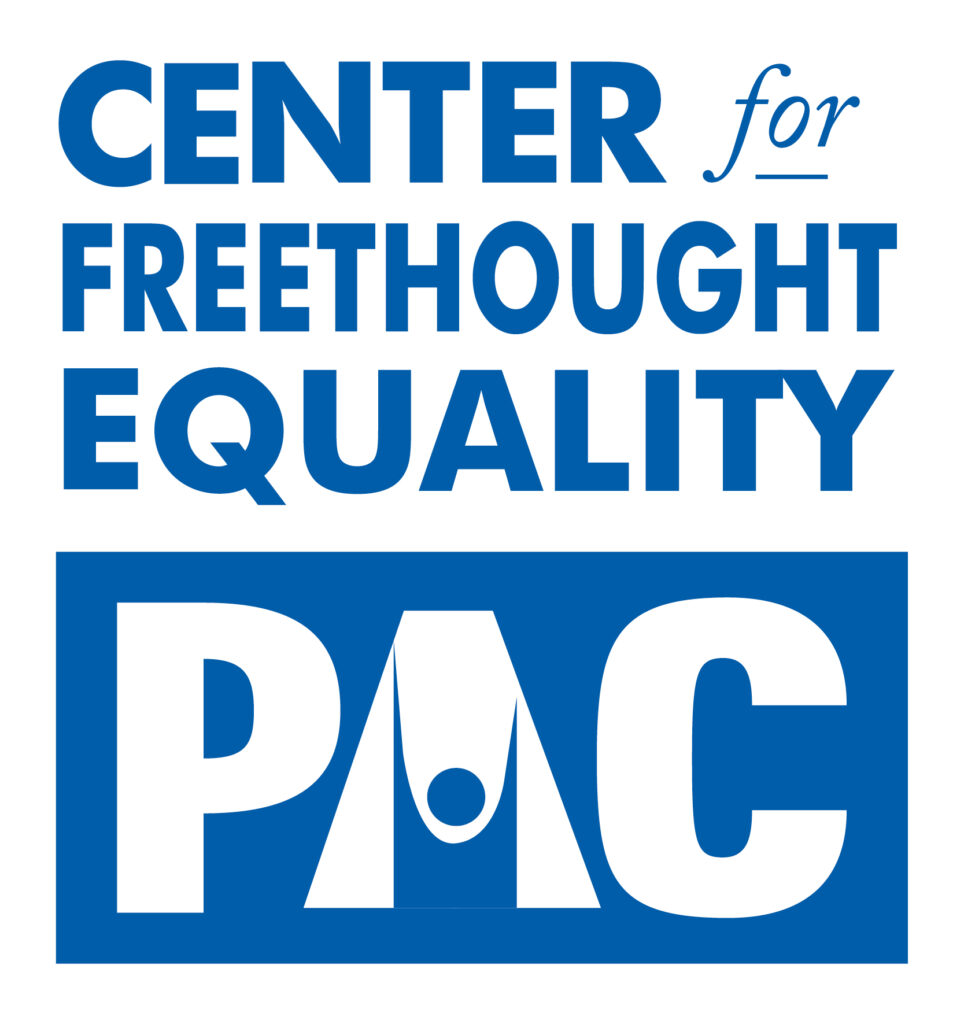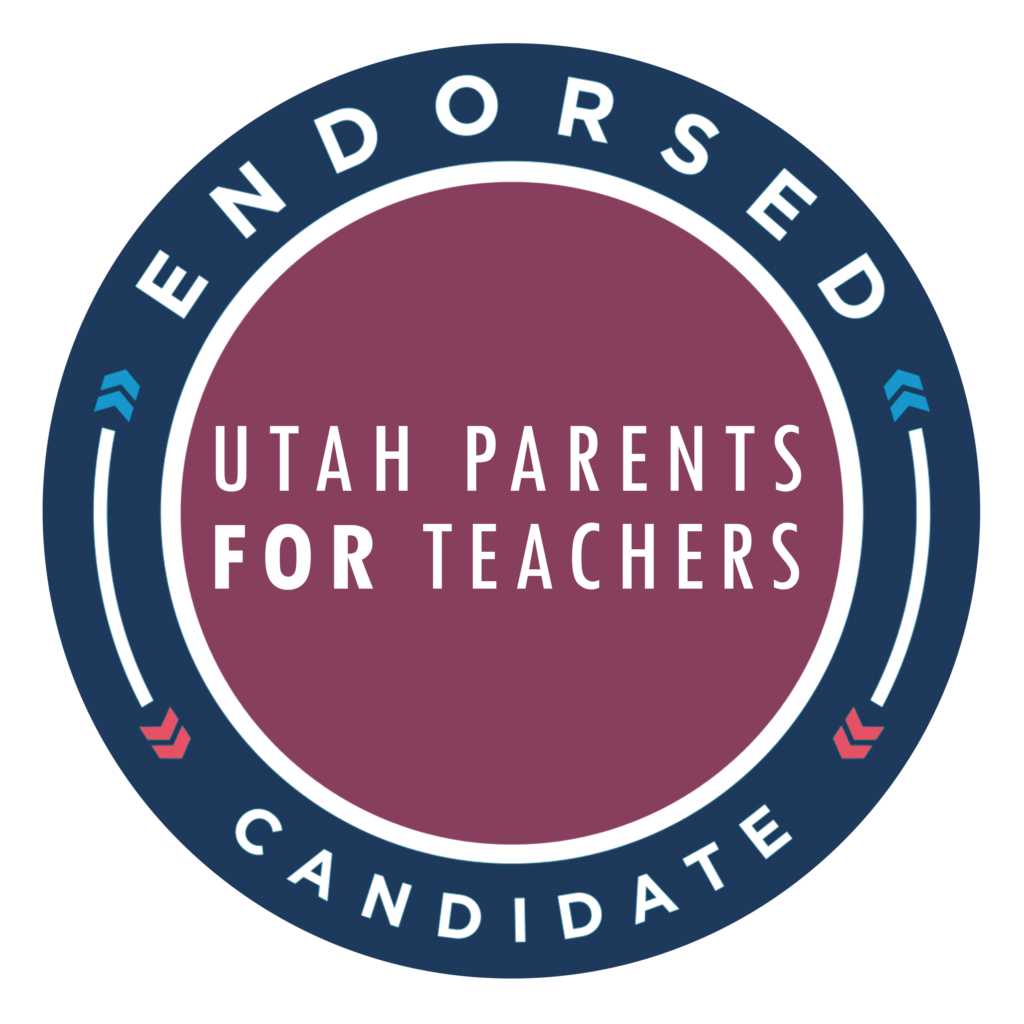I’m not interested in this endorsement because the NRA does not represent responsible and accountable gun ownership. Their PAC actively works against the better interests of our citizenry.
The NRA sells fear.
What’s interesting is that their survey fails to address owner accountability. In Utah during the month of August-September 2024, 3 children were shot and 2 subsequently died as a result of finding unsecured, loaded firearms. Question #13 of the survey (owners of lost/stolen weapons to be held blameless) is the closest the NRA will get to negligent storage of a firearm.
For transparency, I completed answers (but did not submit) the National Rifle Association – Political Victory Fund 2024 NRA-PVF Utah Candidate Questionnaire so that my positions on these questions can be shared with constituents.
Message from NRA-PVF (ilastateaffairs@nrahq.org)
Dear Utah Candidate,
The 2024 Utah Primary Election is right around the corner, and our members want to hear about you regarding your stance on the Second Amendment.
As America’s foremost defender of our Second Amendment rights, the NRA, since its inception, has been the premier firearms education organization in the world. Our continued leadership is due to the tireless service of our millions of members that have championed Second Amendment rights and NRA programs throughout the nation.
NRA members are deeply involved in the democratic process at all levels of government. It is important for them to learn about your commitment to preserving and protecting their Second Amendment rights. The 2024 Utah NRA-PVF Candidate Questionnaire can be found above by clicking on the Review & Sign button. Candidate questionnaires are not released to the public, but the information derived from them is used to determine candidate ratings, which are communicated to our members. Please take the time to fill out and return this survey as soon as possible, so we can let our members know your positions on these important issues.
If you choose not to return a questionnaire, you may be assigned a “?” rating, which can be interpreted by our members as indifference, if not outright hostility, toward Second Amendment-related issues.
Should you have questions concerning the questionnaire or the rating process, please contact me at (564) 236-9746 or KHopkins@nrahq.org.
Thank you for your prompt attention, and best of luck in the upcoming election!
Sincerely,
Keely Hopkins
Utah State Director
Please mark the best and most appropriate response that aligns with your views.
1. Do you agree that the Second Amendment to the U.S. Constitution guarantees the fundamental, individual right to keep and bear arms for all law-abiding Americans? (Yes/No)
x No, it is not a guarantee. Like all rights, the 2nd amendment is not limitless. It says that “a well regulated militia” (i.e. a military force that is raised from the civil population) is necessary.
- What about the “well regulated” part?
- What “Arms” should be defined as belonging to the citizenry?
- What fundamental right does this grant to an individual?
- Does one person’s fundamental right to bear Arms supercede another person’s fundamental right to a safe community?
- The “right of the people” does not presume individual ownership.
- The question states that the right should be for law-abiding citizens, but the 2a doesn’t say that, it says “the right of the people”. Do you disagree that the right of the people is all people who are US citizens?
I want responsible, accountable gun ownership with regulation, and a common acceptance that defense is for the mutual benefit of a free state, not gun hoarding, not fanaticism, not Battle Royale.
A well regulated Militia, being necessary to the security of a free State, the right of the people to keep and bear Arms, shall not be infringed. – U.S. Constitution – Second Amendment
2. Firearm registration is a system in which a government agency maintains immediately accessible records of specific firearms owned by individual citizens. Current federal law prohibits the creation of a federal firearm registration system (other than the existing registration requirement for machineguns and short-barreled rifles and shotguns). Firearm registration has led to gun bans and confiscation in the United States (California and New York City) and abroad (Australia and Great Britain). Do you support requiring firearm owners to register their firearms with a government agency? (Yes/No)
x No. Utah does not require firearm owners to register their firearms.
3. Statewide preemption laws ensure that the state controls firearm regulations, and prevents counties, cities, and other municipalities from passing a “patchwork” of more restrictive and conflicting local laws throughout the state. Do you support Utah’s firearms preemption law? (Yes/No)
x No.
4. In 1994, President Bill Clinton signed a 10-year ban on the importation and manufacture for sale to private persons of nearly 200 models of semi-automatic firearms and ammunition magazines that could hold more than 10 rounds. This became known as the 1994 Assault Weapons Ban. Federal studies determined the ban had no measurable effect on crime, and it was allowed to expire in 2004. Do you support a similar ban on semi-automatic firearms in Utah? (Yes/No)
x It’s complicated. Certain firearms are not for hunting, sport, or personal defense. Those weapons should qualify for restrictions that are reasonable. Additional modifications, regardless of the actuating mechanism, that can turn a firearm into an automatic weapon also need to be restricted.
5. While there is no evidence that limiting the capacity of an ammunition magazine has any impact on reducing crime or increasing public safety, some states are introducing legislation to restrict the possession, ownership, purchase, sale, and/or transfer of ammunition magazines by limiting the number of rounds of ammunition a magazine can hold. Many of these magazines are sold standard with firearms and are commonly-owned. Do you support banning the possession, ownership, purchase, sale, and/or transfer of magazines based on their size? (Yes/No)
x No.
6. Efforts at the state level are increasingly targeting access to ammunition, with proposals to ban mail order sales, require background checks and point-of-sale record-keeping, eliminate traditional lead shot, ration purchases, and even restrict the amount of ammunition that may be possessed at one time. Most of these proposals at the state level aim to punish law-abiding people who practice, train, and participate in recreational shooting activities. Do you support new restrictions on the purchase and possession of ammunition beyond current law? (Yes/No, if Yes, list restrictions)
x Yes, however I disagree that these suggestions are punishment. Ideally we need to phase out lead ammunition used for hunting with a cost effective, more environmentally safe bullet that doesn’t poison scavenger species. This is something that should be introduced within the market and not legislated. Regarding sales tracking, how on earth are you planning to get around that? Internet history, cookies, site accounts, sales records, forums, etc already provide a wealth of information to anyone who wants to look for it.
7. Currently, it is legal for adults over the age of 18 to purchase and possess long guns. Some argue the age to buy rifles and shotguns should be increased to 21. This would effectively deny law-abiding adults, ages 18 to 20, their Second Amendment rights. Do you support raising the age for the purchase of rifles and shotguns to 21 years of age? (Yes/No)
x I support restrictions of firearm sales based on the type of weapon sold that would apply to all buyers.
8. A foundational principle of the American judicial system is the guarantee that an individual is entitled to due process – including notice of the relevant accusations, the opportunity to appear at a hearing before a neutral judge, the opportunity to present evidence in his or her favor, and access to legal representation before they can be stripped of a Constitutional right. Do you agree that an individual’s Second Amendment Right cannot be denied without stringent due process? (Yes/No)
x I support red-flag laws to identify patterns of physical violence and suicidal behavior, or for people who are mentally ill (psychotic, delusional, or otherwise incapable of making a rational decision). The challenge here is what balance there is on when and why to strip a right from a person, and also protect timely restoration of their rights. This is not a simple question to answer, but there are cases where an individual should not have access to a firearm.
9. Gun-free zones create arbitrary boundaries where law-abiding citizens arc disarmed, while zero measures are taken to prevent criminals from entering. Many argue that law-abiding gun owners should be allowed to carry a firearm for self-defense outside their home, especially on public property that is not considered a “secured” facility. Secured facilities are those where all points of ingress and egress are protected by metal detectors and armed security. Do you support state legislation reducing or eliminating gun-free zones that are not secured? (Yes/No)
x No. Churches, Schools, Counseling Centers, Restaurants, Malls, Fairgrounds, Arenas, and any other establishment public or private can have rules on whether firearms are permitted on a property.
10. The “instant” background check system only prohibits the purchase of firearms based on objective disqualifiers. Due process requires the government to substantiate firearm purchase denials with reliable documentation. A “safety valve” provision in current law enforces this requirement by allowing (not mandating) an FFL to proceed with a sale after 3 business days if the FBI still has not denied the sale (illegal possession, of course, remains actionable). Gun control advocates want to repeal this safety-valve and have proposed increasing the “acceptable” time period of delays to a week, ten days, or even indefinitely. Do you support current law allowing the purchase of a firearm to proceed after 3 business days if the FBI still has not denied the sale? (Yes/No)
x No. Point of correction, in Utah background checks are performed by the Utah Bureau of Criminal Identification (BCI).
11. Efforts at the state level are increasingly targeting the expansion of Utah’s background check system. Currently, all sales in Utah, through a federally licensed dealer, have to go through the state’s Bureau of Criminal Identification (BCI) for the criminal background check, which uses the National Instant Criminal Background Check System (NICS), along with other Utah databases. Note: Transfer includes loans, leases, and gifts. Do you support expanding the background check system in Utah to include private sales or transfers of firearms (so-called “universal” background checks)? (Yes/No)
x Yes. I 100% support this.
12. Several states and the District of Columbia require mandatory waiting periods before the purchaser of a firearm may take possession of the firearm. For example, California and the District of Columbia require a 10-day waiting period from the date of purchase to the date of delivery. Do you support mandating waiting periods between the purchase and delivery of firearms? (Yes/No, if Yes, number of days for waiting period)
x No. As long as the application and background checks have been completed successfully, there should be no waiting period for the purchase of a firearm.
13. Lawmakers at the state and local level have been introducing legislation to criminalize the failure to report the loss or theft of a firearm within a certain period of time from when the owner “knew or should have known” of the loss or theft. Proponents claim, although they have never demonstrated, that this will deter illegal firearms trafficking. While the NRA certainly does not oppose the reporting of lost and stolen firearms, it does oppose stigmatizing and punishing the victims of crime or those who suffer loss from events, such as natural catastrophes, that are not their fault. The message these laws send is that persons whose firearms are lost or stolen are somehow to blame or are complicit in the criminal acts of another person. Do you support making it a crime to fail to report the loss or theft of a firearm within a specified time period? (Yes/No)
x No. Comment: Crimes should be reported, and a loss of theft of a firearm should be recorded to protect the owner from possible legal repercussions if the firearm is later involved in a crime.
14. California recently enacted an excise tax of 11% on the sale of firearms and ammunition in addition to existing fees and taxes. The new tax was referred to by the Governor as a “sin tax”. Do you support imposing an additional tax specifically targeted at the retail sale of firearms or ammunition?
Note: All firearm and ammunition sales are currently subject to an 11% federal excise tax known as the Pittman-Robertson Act and applicable state and local taxes. (Yes/No, if yes what additional tax)
x Everything is taxable. California bill AB28 “Gun Violence Prevention and School Safety Act” was passed on Sept. 26, 2023 and went into effect on July 1. For the California bill, money raised is earmarked to pay for things like violence intervention programs, firearm relinquishment, gun safety education and school-based mental health and behavioral services.
15. Increased development, due to a growing and shifting population, has put many established gun clubs and shooting ranges at risk of being squeezed out. This encroachment has led to lawsuits and local ordinances that aim to put established ranges out of business. To combat this, some states have enacted range protection laws or have strengthened existing range protection laws. Do you support Utah’s shooting range protection laws? (Yes/No)
x No. This isn’t a state legislative issue. Work with cities and counties for permits and zoning issues.
16. The Utah Division of Wildlife Resources (DWR) issues over 250,000 hunting licenses annually and the fees from these licenses pay for wildlife conservation across the state. If hunting is an essential tool for wildlife management and conservation, as well as an American tradition that teaches self-reliance, responsibility, and respect for nature. Further, hunting is already heavily regulated by DWR. Do you support further restrictions or bans on hunting? (Yes/No, if Yes, list restrictions)
x No. Comment: My point here is that the Division of Wildlife Resources can continue to be responsible for regulation. I’m not sure what further restrictions the NRA is suggesting, and their language is leading.
17. Traditional lead ammunition is the most common, cost-effective form of ammunition across the United States, but it has been under attack on both the federal and state levels recently by various anti-gun/anti- hunting groups. Non-traditional ammunition, such as ammunition containing tungsten or copper, is expensive and sometimes difficult to find, especially in rural areas. Consideration of any regulation or limitation on traditional ammunition should be based on sound science and population-level impacts. The Association of Fish and Wildlife Agencies adopted a resolution in 2010 which stated that “state agencies should focus regulation efforts where population-level impacts to wildlife are substantiated.” Do you support banning or limiting traditional lead ammunition? (Yes/No, if Yes, explain)
x As stated previously, we need to phase out lead ammunition used for hunting with a cost effective, more environmentally safe bullet that doesn’t poison scavenger species.
18. Firearm registration facilitates firearm confiscation. Understanding that the federal government and most states are prohibited from or do not keep a registry of firearms or firearm owners, gun control activists have attempted to deputize banks and credit card payment processors to maintain private firearm transaction data that will be used to track the purchasing habits of law-abiding gun owners. These gun control activists have encouraged banks and payment processors to utilize a gun dealer specific Merchant Category Code to monitor lawful credit card purchases at firearm retailers. Do you support Utah’s recently enacted law that prohibits banks and payment processors from collecting private firearm owner data? (Yes/No)
x As stated previously, Utah does not require firearm owners to register their firearms. Regarding sales tracking, how on earth are you planning to get around that? Internet history, cookies, site accounts, sales records, forums, etc already provide a wealth of information to anyone who wants to look for it.
19. Are you a member of the National Rifle Association or any other firearm/shooting sports/sportsmen’s organization? (Yes, NRA {Membership Number}, Yes, Member of other Org {List}, No)
x No
20. Have you ever run for or held an elected office? (Yes {List Office}, No)
x No
Please feel free to use the space below to provide additional comments or policy positions you’d like to add, including your history and involvement with the NRA. If your campaign has released a position paper on firearm or Second Amendment related issues, please attach those as well.
Thank you for your time and consideration.
Comments:
The NRA sells fear.
What’s interesting is that this survey fails to address owner accountability. In Utah during the month of August-September 2024, 3 children were shot and 2 subsequently died as a result of finding unsecured, loaded firearms. Question #13 of the survey (owners of lost/stolen weapons to be held blameless) is the closest the NRA will get to negligent storage of a firearm.



